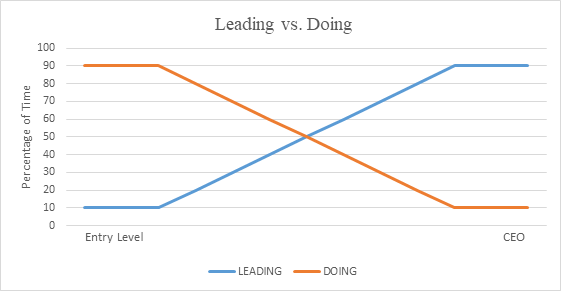This is the fifth blog in a series of five. (Read the first, second, third, and fourth one.)
In January of 2020 (my last in-person conference) I heard a keynote by Jamie Taets of Keystone Group International about going “beyond the paycheck”. The talk focused on helping us, as leaders in our organizations, understand that paying people well is not enough. We need to do more to retain our top talent.
What resonated with me the most were her five reasons why people leave their jobs. Her reasons were all spot on and I have seen each and every one of them in action. Those reasons have never been more important to pay attention to than now. As companies are starting to hire again they may potentially hire away some of your best talent. Using her talk as inspiration, I’ve decided to revive this blog series on those five reasons (her information came from the American Progress Organization) and how you, as a business owner, can address them.
This week we’ll address the issue of having poorly trained managers.
You’ve heard it before: People leave managers, not companies.
And yet, most companies still don’t seem to get it. Poorly trained managers are an issue for many different reasons, including their inability to address the issues listed in the four previous blogs in this series. But their biggest weakness lies in the fact that they haven’t had training on how to deal with people.
A lot of managers end up in their roles because they were star performers in their previous role or simply because they’ve been with the company the longest. You give them the title, the office, a handshake, and then release them into the wild. They’re on their own. Effectively hung out to dry with no training or support. Some of them aren’t even really interested in managing others. They just wanted the pay bump, or the title, or who knows why. Managing people is one of the most complicated jobs anyone can have. And not preparing someone properly is not only dooming them to fail, but it is also dooming their employees to be unhappy.
An incompetent manager can bring down the morale of an entire department, simply because they don’t know what they don’t know. Most first-time managers know how to do the work of their team and how to teach someone to do that work. But no one taught them how to deal with the people side of the work.
A great manager, a manager that employees want to work for, has to have much more than just technical expertise. They are trained on how to hold people accountable in an effective way, how to solve the interpersonal issues that will inevitably arise, and how to motivate and inspire their employees. If you want to have an engaged and productive workforce, you need to make sure that your managers are up to snuff.
You can do just that by creating a company-wide leadership development program.
As a leadership team, you need to determine how to identify up-and-coming talent and how to effectively prepare them to take on more responsibility. A manager’s training shouldn’t start on their first day as a manager. It should start well in advance of that so that they already have the skills needed in order to be successful as a manager from day one.
This leadership development training needs to be robust, ongoing, and intentional. What kind of managers do you want to have at your company? How should they handle performance issues? How should they handle people issues? How should they handle interdepartmental issues? How should they hire new employees? These are the types of issues that new managers will face that they haven’t had to deal with before. They’re used to just coming in and being an individual contributor. Work gets a lot more complicated when you reach that first level of management. And you need to prepare new managers for that complexity.
Teach them how to have tough conversations and how to deliver important feedback. Show them how to run effective meetings. Coach them on how to manage an employee who isn’t meeting expectations. Give them a framework for how to hold people accountable and make sure that everything is getting done. Teach them how to hire effectively. Show them what being a leader at your company looks like. Coach them on how to mentor and grow their employees. Give them the resources they need to continue to develop as a leader and a manager.
Besides giving them the training they need to be successful, you also need to get them in the right mindset to be successful.
New managers are often selected, as we mentioned above because they are very good at what they do. This makes it hard for them to let go of the doing. They like producing a quality end product and being able to point to concrete examples of what they’ve accomplished. But as a manager, their success becomes tied to the success of others, not their individual output. It’s not a hard concept to understand in theory, but it can be a difficult shift from defining their value in terms of their own work product to defining it in terms of the production of others. And a lot of managers have a hard time adapting to that change.
One framework that we use to talk about this transition is the Leading vs Doing graph:

When you are an individual contributor you are Doing almost all day every day and Leading very little of the time. As you move further and further up in managerial roles, those lines cross over each other in the graph. Eventually, you are Leading all day every day and Doing very little. Getting new managers into the right mindset of understanding that you are now measuring them on how well they lead others to do the work will help them adjust to their new role.
There’s no need to risk letting your managers fail when you can easily prepare them to be great leaders.
Managers can make or break an employee’s experience. Don’t leave the quality of your managers up to chance. Take the time to make sure each and every manager has the knowledge, tools, resources, and mindset they need to be successful before they even start managing. I promise you’ll see a corresponding uptick in retention.
